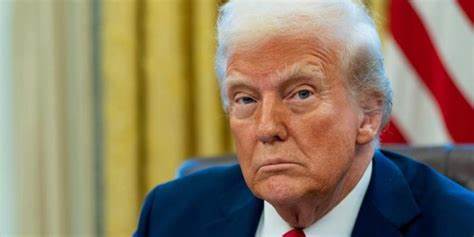A recent declaration by former U.S. President Donald Trump to dramatically slash prescription drug prices in the United States could spell trouble for countries like Nigeria, where access to affordable medications remains a pressing concern.
In a post on his Truth Social platform late Sunday, Trump revealed plans to sign an executive order aimed at cutting prescription medication prices in the U.S. by as much as 30 to 80 percent. He described the measure as a move to end what he termed “decades of unfair treatment” toward American consumers.
“For years, Americans have been forced to pay the highest drug prices in the world, while other nations benefited from our innovation at a discount,” Trump wrote. “That ends now. I’m introducing a Most Favored Nation policy to ensure the U.S. pays no more than the lowest price offered anywhere globally.”
Trump further claimed the policy would lead to “historic savings” for both the government and individual patients, promising to reduce healthcare costs “by numbers never seen before” and save the U.S. economy “trillions of dollars.”
While the policy may ease financial pressure on Americans, health policy experts have raised red flags about the ripple effects such a move could have on global drug pricing—particularly in developing countries like Nigeria.
Nigeria at Risk of Becoming a Casualty in Global Drug Market Shift
The Nigerian pharmaceutical landscape is already fragile. With an estimated 70 percent of the country’s medicines imported, any disruption in global pricing mechanisms could have a direct impact on access to life-saving drugs.
Nigeria’s annual healthcare spending is estimated at $10 billion, with around $4 billion of that devoted to pharmaceutical products. Yet, only a fraction—about 25 percent—of these drugs are produced locally. The rest are brought in from international manufacturers who could now be looking to recover losses in their U.S. markets by raising prices elsewhere.
Dr. Ladi Ogunleye, a Lagos-based health economist, warned that “if pharmaceutical firms are squeezed by price controls in the U.S., they may respond by hiking prices in countries like Nigeria that have little regulatory leverage.”
The concern is magnified by the fact that more than 60 percent of healthcare spending in Nigeria is out-of-pocket, due to the nation’s limited health insurance coverage. This places a significant financial burden on ordinary citizens, many of whom are already struggling to afford basic healthcare.
“If the cost of essential medicines such as insulin, antiretrovirals, or cancer therapies goes up, many Nigerians could be priced out of treatment altogether,” Dr. Ogunleye added.
Implications for U.S.-Funded Health Programs in Nigeria
Nigeria also benefits from American-funded health programs like the President’s Emergency Plan for AIDS Relief (PEPFAR), which supports thousands of HIV patients with free or subsidized treatment. Though Trump’s executive order does not directly address foreign aid, his administration has previously threatened to reduce or reevaluate international health assistance.
Observers fear that any shifts in procurement policies or funding mechanisms tied to U.S. drug pricing could indirectly affect aid-based treatment programs in Nigeria.
Health rights advocate Chinenye Okoro described the potential implications as “deeply worrying.” She noted, “If drug companies cut supply or demand higher prices for markets like ours, the consequences for patients relying on foreign aid or subsidies could be devastating.”
Global Fairness or Nationalistic Overreach?
While Trump framed the move as a corrective action to ensure “fairness to America,” critics argue it could spark a global rebalancing of drug prices that disproportionately affects low- and middle-income countries.
As the U.S. prioritizes domestic affordability, countries with underfunded healthcare systems may be forced to confront new challenges in keeping critical medications within reach for their citizens.
For Nigeria, the coming months will be pivotal in determining how far-reaching the impact of this U.S. policy shift will be—and whether vulnerable populations will once again bear the brunt of geopolitical economic decisions.

















